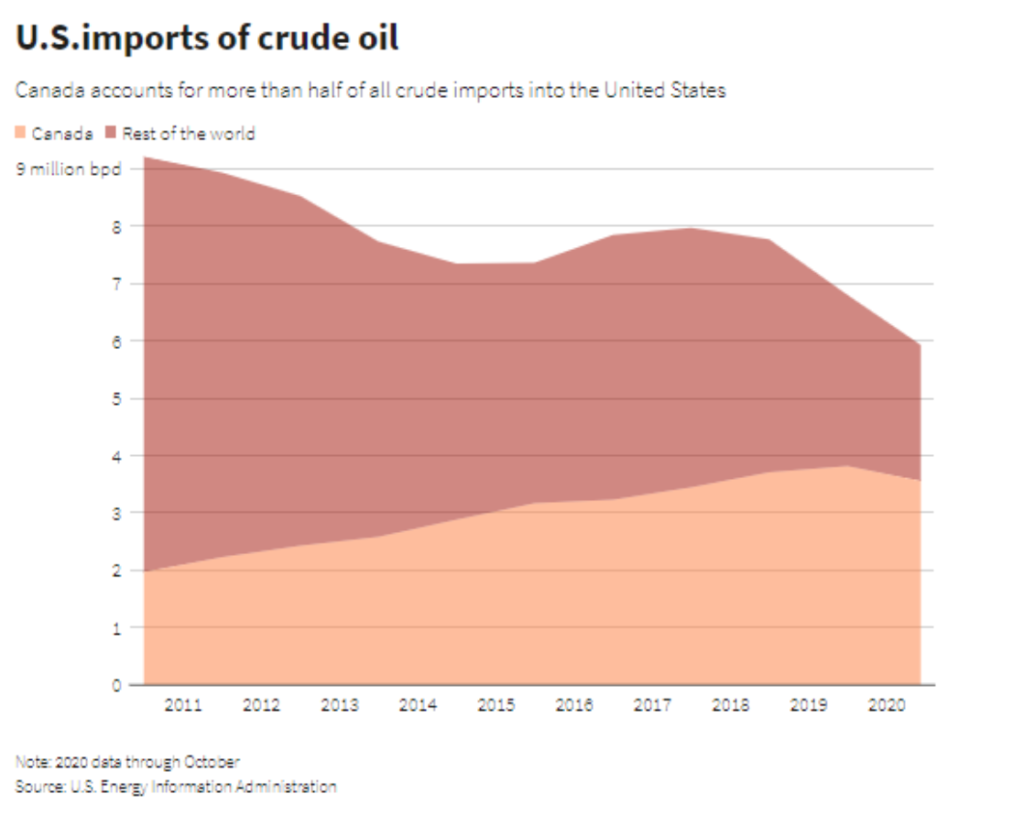Keystone XL may be dead, but Canadian pipeline projects currently under expansion are set to add more than 950,000 barrels per day of export capacity to the country, before 2025, according to Rystad Energy.
The recent move by the Biden administration to axe the Keystone XL project was hailed by environmental and indigenous groups; it also came with the disappointment of TC Energy, the company set to build up the project; nevertheless, oil export opportunities from Canada to the U.S. have just only begun.
According to the U.S. Energy Department’s data, Canada exports to the U.S. up to 3,8 million barrels per day; experts quoted by Reuters expect this to rise to 4,2 million or even 4,4 million barrels per day for the next couple of years.
Yes, KXL would have had a capacity of 830,000 barrels per day, but midstream projects currently in expansion would add more than 950,000 bpd of net capacity before 2025. Currently there’s enough capacity in Canadian pipes to export more than 4 million bpd to the U.S.
In fact, Canada is the main oil partner of the U.S., as the nation imports more than half of its foreign cargoes from Canada. As we have reported previously, projects like the expansion of Enbridge’s Line 3, which will more than double its current capacity, will add around 760,000 bpd of exporting capacity, from Alberta to Wisconsin, by the end of the year.
Recommended for you: Oil falls as China reports new Covid cases; U.S. oil inventories jump


Canada with excess export capacity for the first time
The expansion of the state-owned Trans Mountain line, will expand current transport capacity of 590,000 bpd, to 890,000 bpd. Line will end at the port of Vancouver, from where it will be exported to the U.S. by cargo tanks.
TC Energy is also expanding its Keystone line, far from the proposed XL addition which will add another 170,000 bpd of capacity to the existing asset, which will supply the U.S. Midwest and Gulf Coast.
“We will be over-piped assuming the other pipelines go ahead on schedule. If you add them all up, you can make the argument KXL was not needed,” said Wood Mackenzie research director Mark Oberstoetter.
“While the politics around KXL will continue to reverberate for some time, the reality is that western Canada, for the first time in recent memory, may soon reach a juncture at which it has excess oil export capacity,” concluded Rystad Energy’s vice president for North American shale Thomas Liles, quoted by Reuters.

